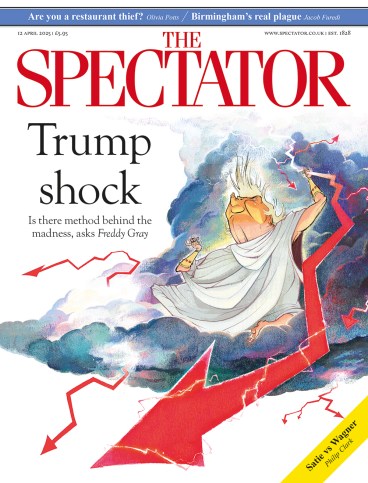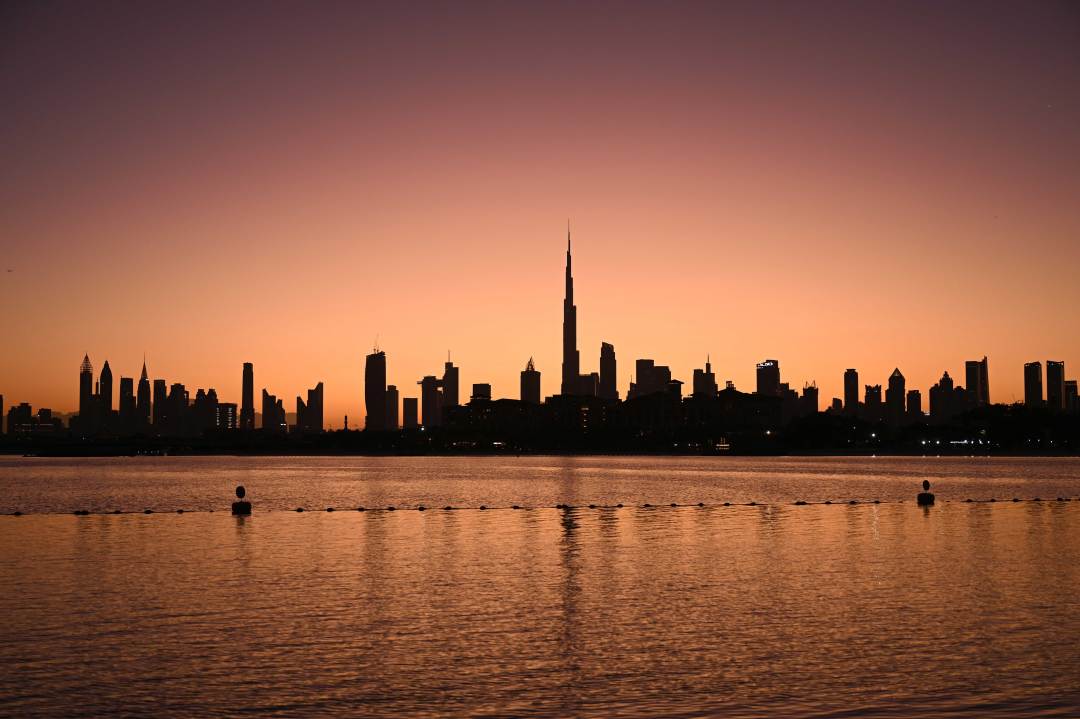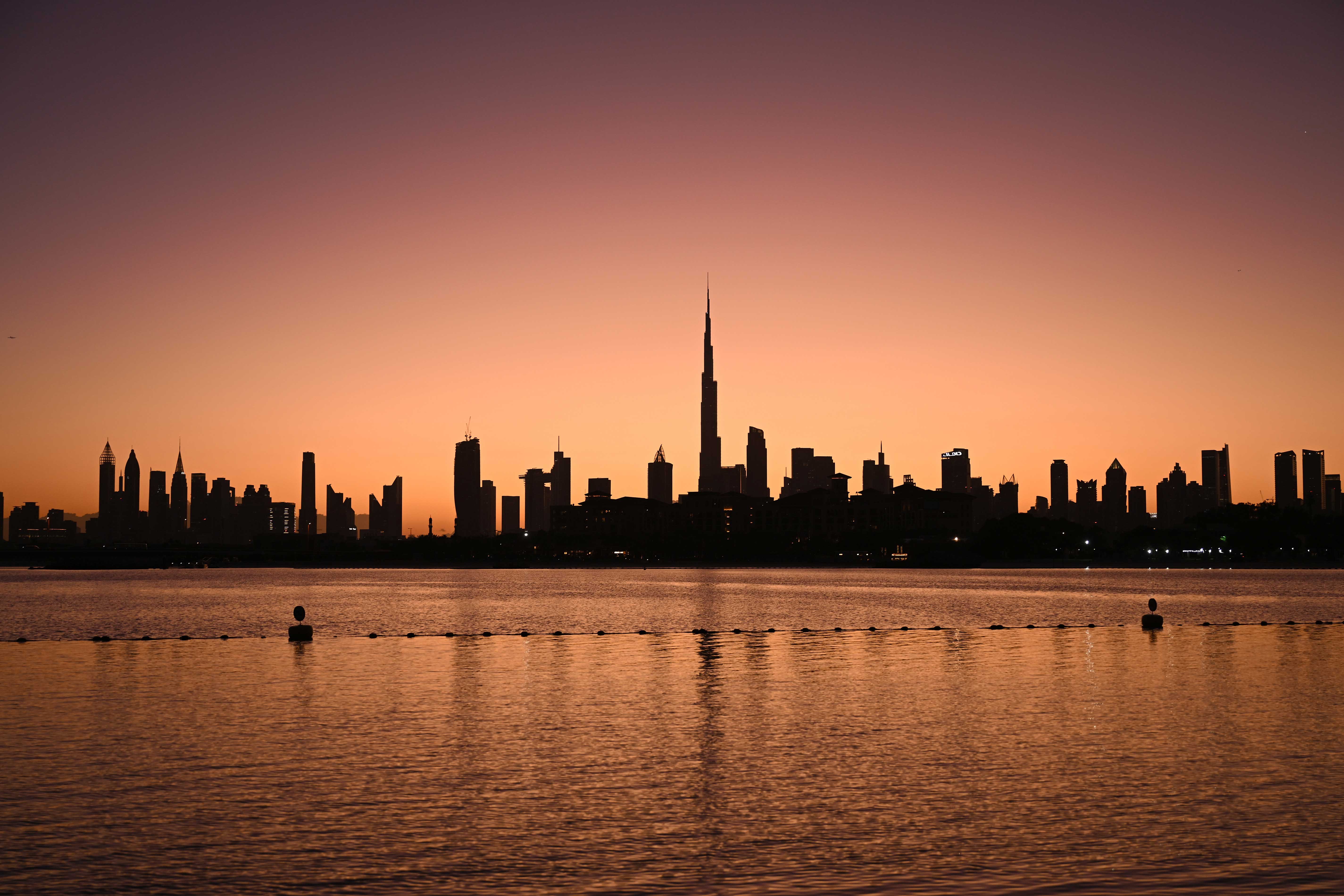
If Elon Musk gets his way, and Mars becomes our newest New World, I had always assumed that the people who emigrated there would be rather like the Pilgrim Fathers – ascetic, homogenous, insular and highly religious. The sort of group that has historically had the psychosocial qualities necessary for withstanding a long voyage to a dangerous frontier.
My money is still on the Pilgrim-types to lead the way, at least in the early waves. But I did wonder, while sitting in its airport last week, if interplanetary human civilisation might one day end up looking something like Dubai.
Dubai operates rather like a space colony. It depends on desalinated sea water and imports almost all of its food. Temperatures can approach 50˚C in the summer, with no rain to speak of, and construction workers frequently die of heat exhaustion. This is an environment exquisitely hostile to human life, hence the air-conditioned sand on Dubai’s most luxurious beaches. For the wealthy, life is lived indoors for many months, under artificial lighting. Nevertheless, out of the desert has sprung a prosperous, hi-tech, cosmopolitan society that bright young chancers want to be a part of.
British chancers, above all. The population of Dubai has grown from 20,000 to more than three million in just 75 years, and British citizens represent the largest western community by some distance. There are estimated to be as many as a quarter of a million Brits living in Dubai, plus a similar number in neighbouring Abu Dhabi, and their numbers will keep growing. Tens of thousands of British people are moving to the Gulf every year, and there has been a 50 per cent year-on-year rise in UK searches for ‘move to Dubai’ and ‘jobs in Dubai’.
The British influence is there, if you look for it. We stopped off in Dubai for a brief holiday on our way back from visiting family in Australia, and we saw a lot of other middle-class British families – both holidaymakers and residents – doing the same things as us: shopping in the many branches of Waitrose and M&S, enjoying the sunshine and feeling richer than usual.
There’s a common joke about why British people move to Dubai: ‘a three-letter word ending in “x” – and no, it isn’t “sex”.’ As Britain’s welfare bill grows and productivity falls, the tax burden on workers is becoming ever larger, particularly at the top end of the income distribution. High earners are contending with frozen income tax thresholds, the gradual loss of the personal allowance for those earning more than £100,000 and a cliff-edge for childcare subsidies that can result in a marginal tax rate of 180 per cent for some families. Plus, for anyone who started university after 2012, you can add a 9 per cent tax on income above £28,470.
Meanwhile the costs of an upper-middle-class lifestyle have grown. Financial advisers Chancery Lane have calculated that a family of four now requires a household income of at least £200,000 to afford a family home in the Home Counties, private school fees and holidays twice a year. Adjusted for inflation, all of this costs more than double what it did 40 years ago.
Now look at what Dubai offers to such people: no income tax, no capital gains tax, no inheritance tax, very low levels of crime, and the opportunity to shoot up the socio-economic ladder with access to nannies and housekeepers and Middle Eastern branches of some of the top British public schools.
British citizens represent the largest western community in Dubai by some distance
Yes, British people are occasionally arrested for disobeying Islamic prohibitions on behaviour that is regarded as fine back home. But safely within the confines of our international hotel, all of this felt a long way away. Alcohol was readily available, the poolside was thronged with scantily clad western women and we could add bacon to our (rather good) full English breakfast, collecting it from the counter reserved exclusively for pork products.
The Emiratis know what they’re doing when it comes to attracting the world’s elite. Dubai takes the elements of global culture that perform best in the free market and blends them into an uncanny new form. You can watch Japanese anime, drink English tea, eat American burgers, drive German cars and buy French luxury brands. With sunshine all year round. If you’re an aspirational young Brit who likes the finer things in life, why would you care whether people back home think your new lifestyle is tacky?
We did catch glimpses of a more third-world way of doing things: the taxi driver who assured us that people don’t need to wear seatbelts, the Emirates porter at the airport who loaded our bags on to a trolley without revealing that he expected us to pay him £20 to wheel them just a hundred metres. These subtle signs of carelessness among service workers are then paired with displays of deference so ostentatious as to be unnerving. But that’s part of what Dubai offers western immigrants: the opportunity to feel like a minor sheikh.
I wouldn’t do it, personally. I like trees too much, and I find a preoccupation with luxury brands distasteful. But I get it, I really do. And I can see the growing political crisis that Dubai represents to the British government. The young and high-earners who are emigrating to such places are exactly the sort of people we do not want to lose, given our existing economic worries.
As more of them go, more of them will want to follow. A survey last year by the British Council found that 72 per cent of British 18- to 30-year-olds would consider living and working abroad in the short or long term. A separate survey by Currencies Direct found that 38 per cent of 25- to 34-year-olds are considering leaving the UK in the next five years, and 11 per cent are thinking about moving right now.
The British have historically been an adventurous bunch. What distinguished the British Empire from other European empires was the willingness of British men and also – crucially – women to up sticks in search of a better life elsewhere. That’s why the British diaspora is the largest in the world, with an estimated 200 million people of British descent living outside these islands.
If we do ever go to Mars, I would expect the British to be some of the most eager colonists. When conditions are sufficiently unpleasant at home, hostile and far-flung places have always appealed to us. Dubai represents just the latest iteration of that old impulse.









Comments